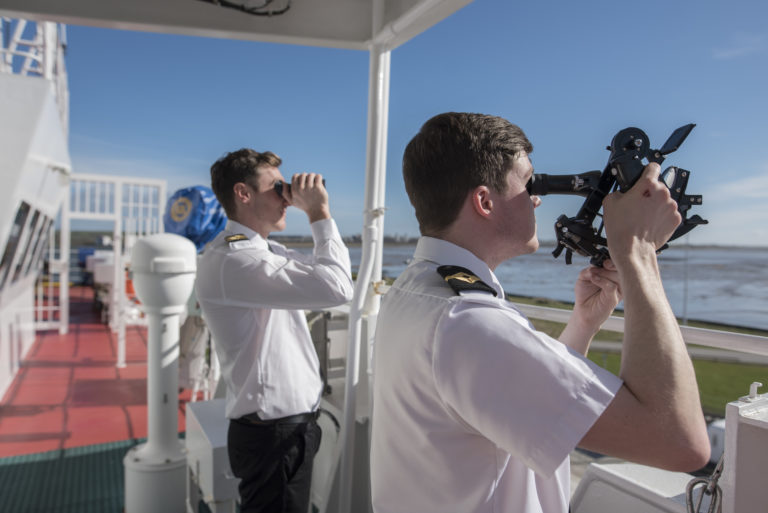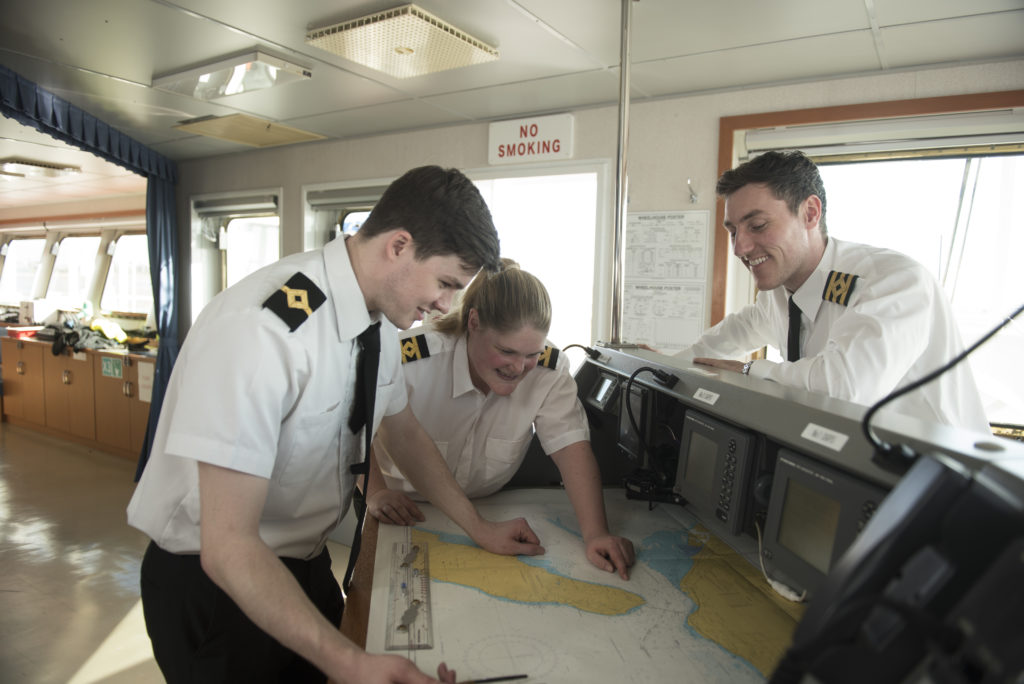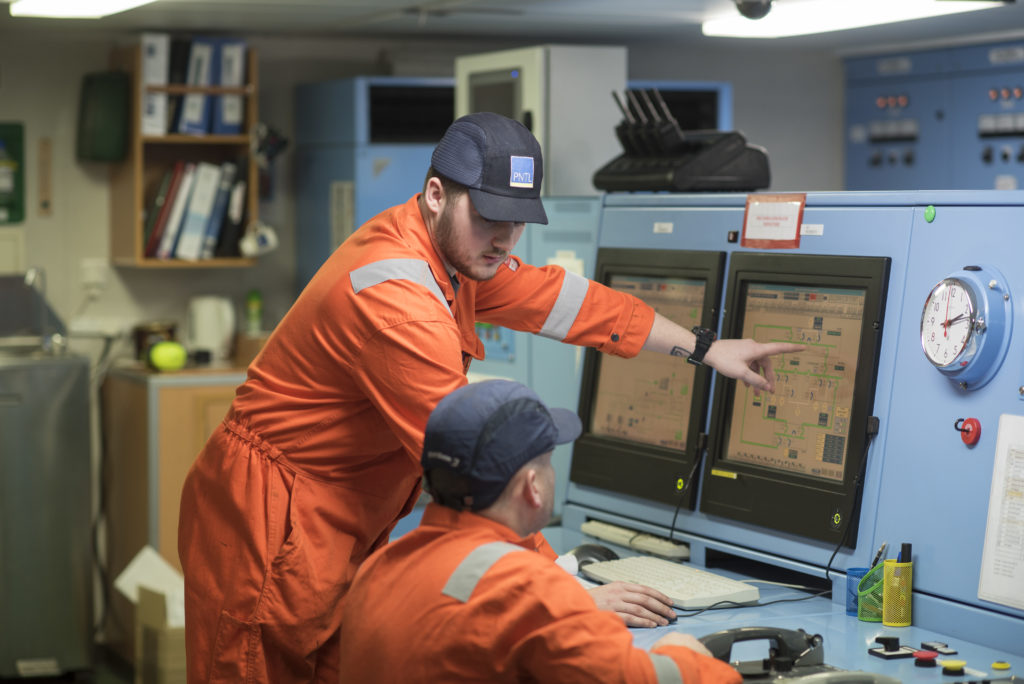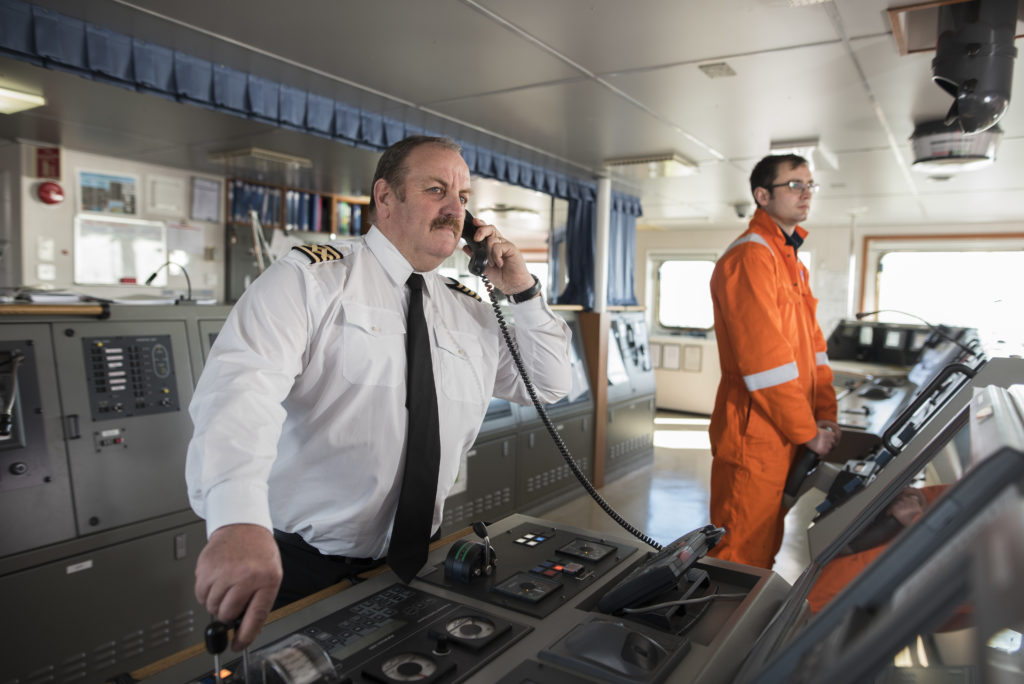PNTL cadets

A career as an officer in the Merchant Navy can be interesting and challenging. Before you can become an officer you need to complete a structured cadetship which is sponsored by PNTL. The cadetship is a three-year course and you gain an internationally recognized qualification. There are three types of cadetship depending on the vocation you wish to follow: Deck; Engine and ETO (Electro Technical Officer). On successful completion, you will have all the knowledge and skills necessary to work onboard ships.
For more information on cadetships with PNTL, please email [email protected]
What you can expect from us:
A high standard of classroom training at a leading UK Nautical College as well as practical on the job training from our highly skilled officers on board our vessels. Not only is the cadetship funded by PNTL but our cadets also receive a tax-free salary of between £8,500 – £10,500 a year as well as having their accommodation paid for too. Starting salaries upon qualification for junior officers in our fleet are in the region of £46,000 to £49,000. For our employees we also pay for ongoing learning such as certificate revalidation as well as study time for further Certificate of Competencies.
What are we looking for in you?
To thrive as a cadet, you need to be adaptable, keen and motivated to learn and comfortable with living and working away from home. You’ll be expected to get your hands dirty and start with jobs like chipping and painting on deck or cleaning in the engine room. It is important that you are prepared to work as part of a team and take orders. You need to take control of your own learning and strive to be the best you can be.
Qualifications and minimum requirements:
There are two routes to becoming a fully qualified Merchant Navy Officer with a Maritime and Coastguard Certificate of Competency:
SQA Advanced Certificate or SQA Advanced Diploma (AdC/AdD) Route:
The Advanced Certificate (AdC) qualification is roughly equivalent to the first year of university and fulfils the academic requirements needed to become a Merchant Navy officer at operational level. Available in three pathways: • Nautical Science • Marine Engineering • Electro-Technology
You will need to have at least four GCSEs or Scottish Standard Grades including English, Mathematics and Science.
Grades:
- • 9-4 or equivalent letter grades (England)
- • 1-4 or equivalent letter grades (Scotland)
- • A-C or equivalent letter grades (Wales)
Upon completion, you will receive at least an SQA Advanced Certificate (AdC) as well as your Certificate of Competency. Sponsorship also available at SQA Advanced Diploma (AdD) level.
BSc Honours (Deck) or BEng Honours (Marine Engineering or Marine Electrical & Electronics Engineering Route.
These courses are a suite of degree programmes for the maritime industry that will provide you with the knowledge, skills and behaviours needed for a career in commercial shipping. It is important to understand that this is an intensive programme of study. You will be required to study modules at a rapid pace throughout your college phases
You will need to have at least four GCSEs or Scottish Standard Grades including English and Science. Additionally, Mathematics need to be achieved at a minimum Grade 5 (or equivalent) PLUS 60 UCAS Points in a relevant Discipline.
Grades:
- • 9-4 or equivalent letter grades (England)
- • 1-4 or equivalent letter grades (Scotland)
- • A-C or equivalent letter grades (Wales)
For each route, you must be 18 years old prior to the first sea going phase of your training.
Maritime Apprenticeships
For Rating training, please contact [email protected] to discuss options for the Level 2 Seafarer Maritime Apprenticeship or Maritime Mechanical and Electrical Mechanic Apprenticeship.
Our cadet roles

Deck cadet
You will spend your time shadowing senior crew to learn a range of tasks such as navigational watch – monitoring radar, performing lookout duties and observing the passage of a ship.
Deck cadet
Engine cadet
As an engine cadet, you will spend your days onboard ship tracing out some of the different systems onboard as well as getting hands on experience, learning how to strip an engine and inspect components.
Engine cadet
ETO cadet
Electro Technical Officers (ETO) cadets can expect to learn about reactive fault finding and planned maintenance onboard our vessels.
ETO cadet